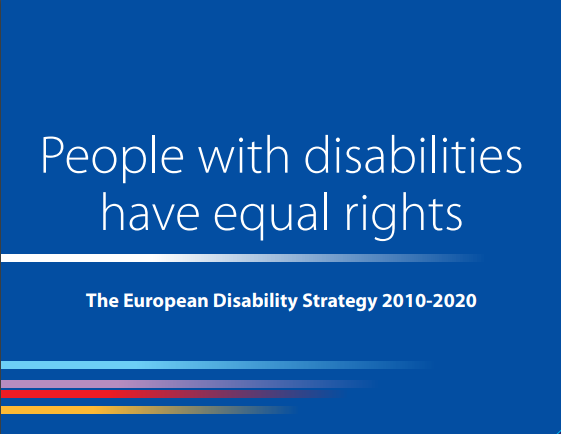“The European Disability Strategy must be ambitious” – our statement to the EESC
“European cooperation is very important and the EU plays a vital role to strengthen the rights of people with intellectual disability – and this is why the European Disability Strategy strategy must be more ambitious.”
This was the main message Inclusion Europe brought to the European Economic and Social Committee at its hearing on “The future of the European Disability Strategy 2010-2020”.
The Committee organised the hearing to discuss how the strategy can support the follow-up of the recommendations for the EU which the UN Committee on the Rights of Persons with Disabilities (UN CRPD) had published in 2015. Participants also looked ahead to a strategy which might be put in place for the post-2020 period.
Inclusion Europe illustrated different ways for the strategy to become more ambitious.
First of all, the entire process of drafting, approving and monitoring the strategy should be accessible for people with intellectual disabilities, including easy-to-read versions and easy-to-understand meetings.
“The strategy affects people with intellectual disabilities. They should be in a position to have their say”, Milan Šveřepa, Inclusion Europe director, pointed out.
The European Disability Strategy should include clear targets on closing institutions!
Milan Šveřepa, Inclusion Europe Executive Director
The strategy needs to address the issue of legal capacity, which has far-reaching effects on the right of people with disabilities to make decisions about their own life. The strategy should therefore put forward supported decision-making instead of guardianship. “These are key also to make progress in all priority areas of the current strategy, for instance employment or social protection”, Milan Šveřepa explained.
In the framework of legal capacity, the strategy should talk about the right to vote, a right many people with intellectual disabilities in EU countries are still excluded from.
It should also push the topic of deinstitutionalisation and ending segregation: “The strategy should include clear targets on closing institutions and developing support for independent living and inclusive communities.”
Milan Šveřepa also talked about how the strategy needs to recognise the role of families in supporting inclusion of people with intellectual disabilities: “It needs to target the discrimination, poverty and exclusion those families face”, he stressed. “These circumstances not only are disgraceful for the people who care for their loved ones – they also directly fall back upon the people with disabilities themselves.”
Finfally, “we need to move beyond the transition from one model of ‘care’ to another”, Milan Šveřepa said: “The ultimate aim is independent living, and this is much broader than just care.”




